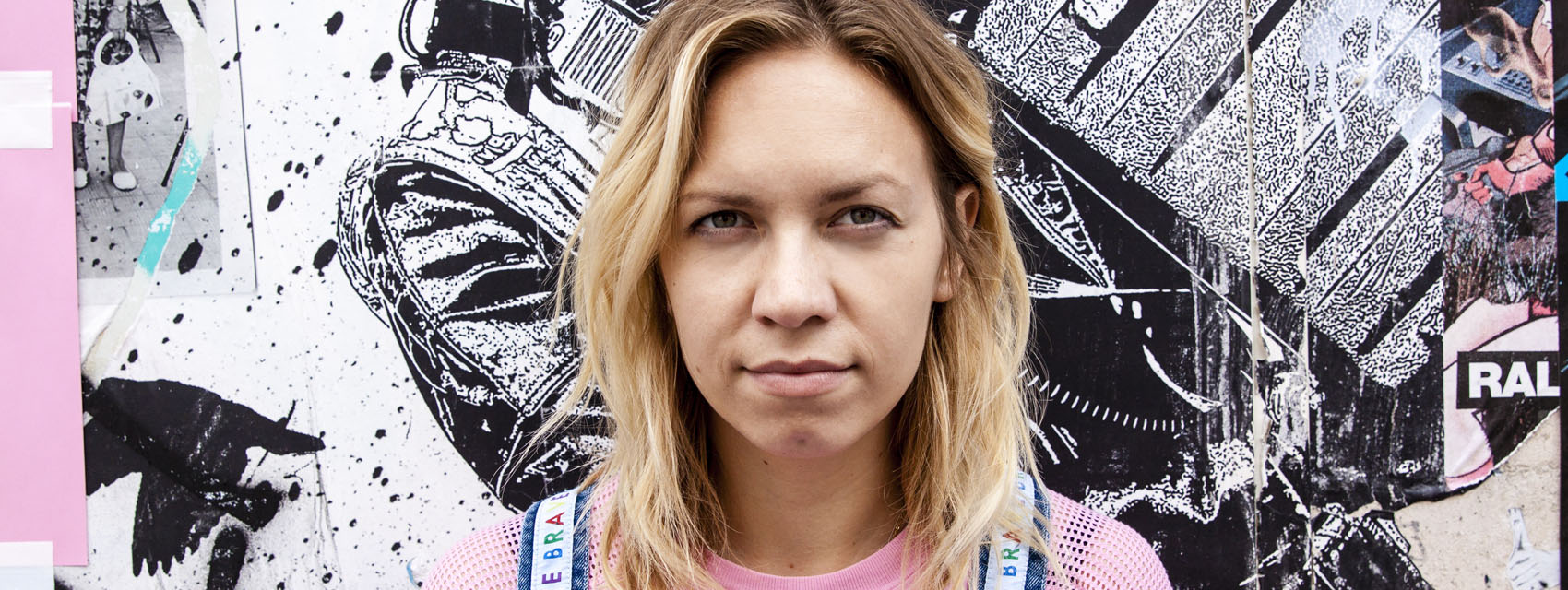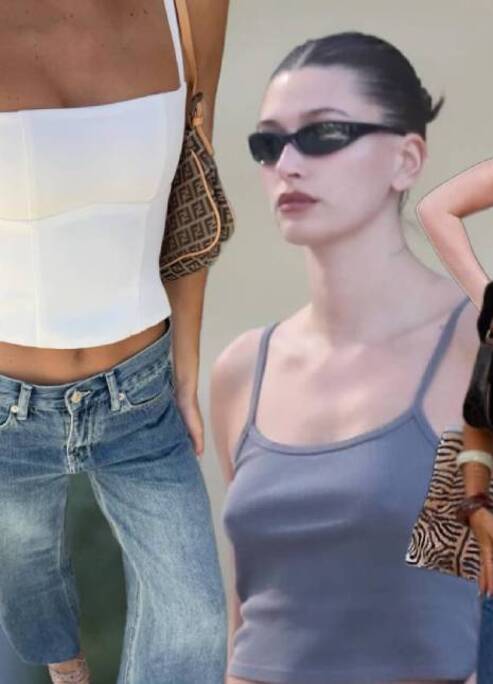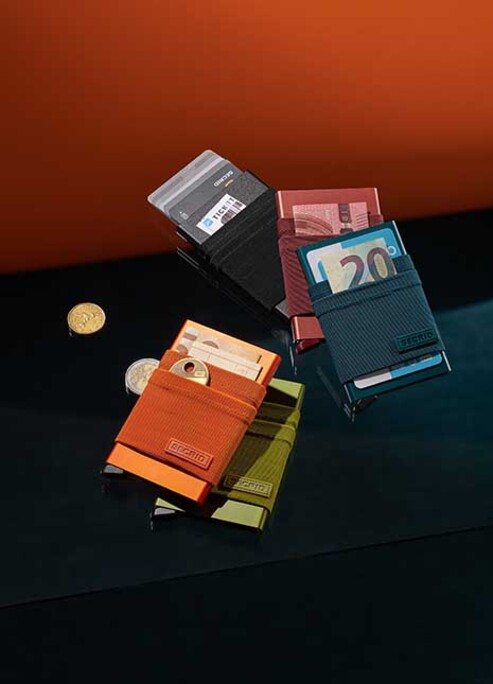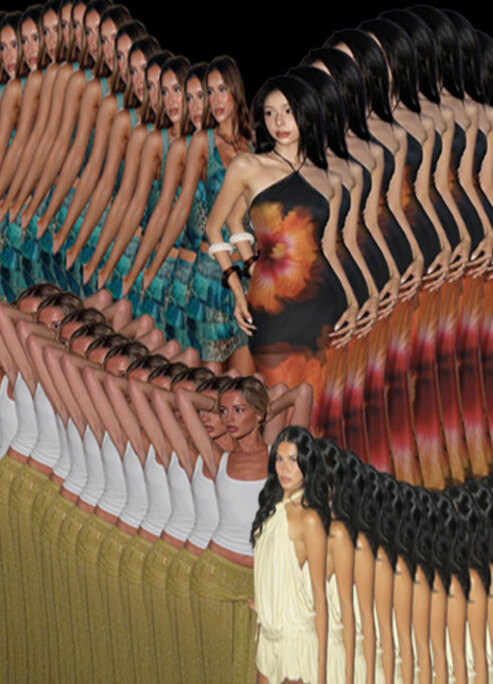Fashion For The Earth: Exclusive Interview With Eco-Queen Areta Szpura
We talk sustainable fashion with the Local Heroes co-founder at last weekend's Bread & Butter Festival.
Originally from Warsaw, Areta Szpura is a creative nomad, living, working and learning in no single spot. Co-founder and former co-owner of super-cool clothing brand Local Heroes, Areta is now onto exciting new things, bringing an environmental focus into her work. We caught up with her at last weekend’s Bread & Butter festival in Berlin to find out what’s coming next.
Hey! So first things first, tell us what you’re up to at Bread & Butter!
Having fun… meeting all the amazing people, seeing all the cool fashion, having a lot of good food, drinking coconut water and enjoying Berlin. It’s like… everything in one.
Sweet. So we wanted to know what you’re doing next in fashion. We know that you’ve been thinking a lot about sustainability and we know you’re moving forward. We’d love to hear all about it, what’s going on, what’s happened so far, and what’s next?
Well the thing is, the decision to quit Local Heroes took like, almost two years. It’s something you grow with, you know, I’ve been doing that for six years. It was amazing – the best time in my lifetime and it was a great opportunity, so I’m very very thankful for that. But it just got to the point where I felt like I wasn’t moving forward, so that was the choice I had to make in order to get out of my comfort zone and start doing new things. Cause you know, it was the same thing: collection, collection, lookbook, photo shoot blah blah blah and so, it took some time to get to that point and we were happy with that because we felt like real adults taking that decision for the good sake of us and the company and everything. It’s like a win-win.
So, it’s like my third month of being er… free. So I spent the first two months in Warsaw but it didn’t really feel like I’m moving forward, you know, spending time with friends and family, just doing nothing. So then I thought I needed to go somewhere where no one knows me and I don’t know anyone, to get out of that comfort zone and look for inspiration and even just spend some time with myself. And then my friend told me that she has her apartment in New York available for the whole of August and I thought… that’s the perfect spot to go to. Especially because New York is the place where I came up with the name of Local Heroes. So there was this little coffee shop in Soho called Local. It all made sense. So I went to New York and on that first day I headed over to that coffee shop and… it was gone. They closed it down after like, six years. And you know, nothing happens without a reason. It was all the little signs. And I wanted to go to my favorite vegan restaurant and it was also closed down so I just felt like it was also a good month to restart my system, to say goodbye to old things and to get inspiration for the new ones.
So right now, I don’t have one specific plan, I don’t want to have one. I could get another job and go back and work but that wasn’t the whole point of getting out of my own company to go back to another job like right away. I just want to have time to think and to brainstorm and to do little projects first, so I can figure out what I want to do, and what I don’t want to do, cause I’ve changed over the past six years. I’m not the same person so I can’t have the same job obviously. But for sure, I know I want to do something connected with sustainability. It’s just something that’s very close to my heart right now.
All the little projects that I’m even doing now with small companies or big companies, my number one thing is that we have to, or the company has to, be doing something pro-eco and sustainable. So, for example, if I design something new in collaboration with another company, it has to be sustainable. And then I’m going to do this awesome project with Starbucks in Poland in September that will support sustainability too. So yeah, it’s awesome when you kind of label yourself – those projects almost come to you. Because they know you’re like, the right person to go to. And of course, I know big companies aren’t the best but you can also work with small companies and help them too. But if you can even try to change a big company just a little bit, that’s still a big scale change.
And where did that drive with sustainability come from? I mean obviously, everybody knows it’s important, but for somebody working in fashion to have that as their sole drive is still something very unique. So where did that start for you?
I think I always loved fashion, but I never really understood that we’re a part of the whole cycle. So I started reading books and articles, but then two or three years ago I watched The True Cost on Netflix and that changed my life completely. I had to watch it a couple of times to know all the details because there’s a lot in there, but once you watch that movie, you won’t be the same person ever again. I think every person that works in fashion should watch it because it really shows us how we’re a part of the cycle and how we’re driven to buy stuff and how it affects the people that manufacture it and how little we can do to have a big impact and help those people.
Until around 50 years ago, 90 percent of clothes sold in America were made in America, so for those 50 years afterwards, everything changed, everywhere in the world. And it got the point where we were buying a lot of cheap stuff that we don’t really need and don’t really want but because it’s cheap, we get it. And we never really end up wearing it, or maybe just wearing it once and then it goes to landfill, and it can’t even be recycled because it’s a polyester mix and nobody ever thinks about what will happen to that. It won’t be donated to people that need it because it’s such a bad quality that it ends up needing to be thrown out after one use. And it ends up in landfill, on islands or in third world countries, destroying their eco-systems and their own closed businesses, because all the people producing clothes locally in Africa will have their businesses affected by all the free stuff from America, for example. So there’s all these little things where you just realize, like, how wrong is that?
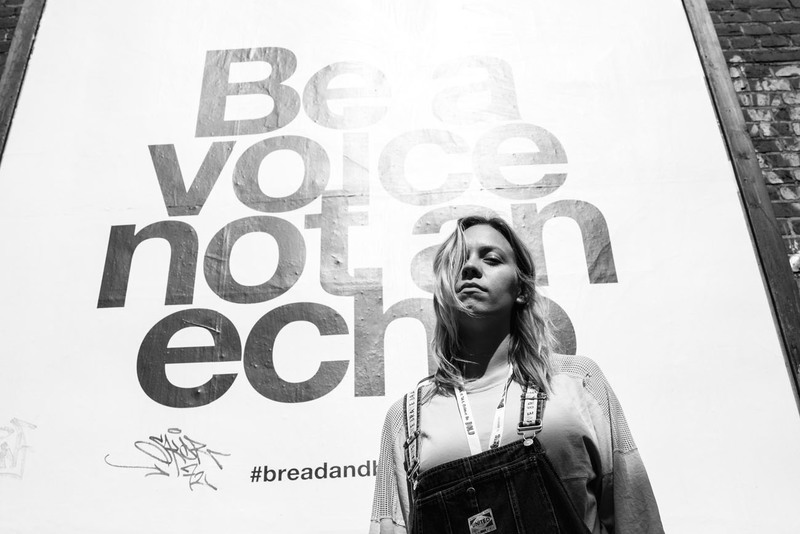
And for me, it got to the point where I knew that I didn’t want to support it anymore. It just feels so wrong. So it doesn’t mean that I stopped loving fashion, I just know that whatever I’m doing has to have a positive impact. Because I don't expect people to stop buying high street fashion, I just want more people to know about what’s going on, and how everything works. I just hope people can buy more consciously, so they’ll only buy the things they need, they’ll look at how its made and would rather buy one thing that’s better quality and made Fairtrade and then they can have it for years. And not just have something for 10 dollars and throw it away. So I think some companies even like H&M are trying to change, but it has to work both ways. Companies won’t change everything until people insist that companies have to start doing better. Everyone has a choice and everyone can make a difference just by the things that we’re choosing.
Yeah, and what’s interesting about the fashion industry is that – without wanting to generalize –it’s an industry full of intelligent, creative people, yet the consideration of sustainability is something that’s really lagging behind. What do you think needs to change, not just in your own business progression but in the mindset of the industry in general, to push the focus on sustainability and eco-thinking?
I think that everybody just has to start being responsible for their own actions and remind ourselves that we live on one planet and we really don’t have any backup planets. So everything we do on a daily basis, whether that's using plastic water bottles or plastic bags, or buying from a high street source, every choice makes a difference. And it doesn’t mean people should stop designing. It just means that people going about their daily lives need to have that in the back of their minds, you know, that they can do what’s best for them and for the planet. It’s a win-win policy. And that’s my utopian dream. (laughs)
Cool. So, with that in mind, tell us what’s coming next for you.
Well, I’m dreaming of opening my own place that will promote zero-waste sustainability. A place where people can meet and talk, and meet from online to real life. Cause you know, it’s also important to have that option. And there we could promote all the goodness we can. At the moment that’s still more of an idea – I don’t really have any specific plans yet.
And then other things… well they’re very ambitious plans. I just hope I can get out of my comfort zone and do things I was always scared of doing and dream big. Because I know if I can dream it, I can do it. And I know that if I’m out of the comfort zone, then that’s the moment I know I'm growing. So for now, we’ll see what happens. I feel like I’m a child again – I’m reading and watching everything I can. Not always fashion, but history, art, the economy, all the different things that I was never able to spend time with before because it was always work, work, work. Right now, I just want to get a little bit of everything and then just brainstorm everyday. So I guess we’ll see where that will take me.
Sounds exciting. And if you could develop or change one garment in fashion and boost its sustainability, what would it be?
I think the basics – the things that everybody wears. So I think – just thinking out loud – underwear or socks are something that we usually can’t buy secondhand, so if we could try to make them sustainable and manufacture them with recycled or fairtrade cotton, then that would make a big difference because these aren’t the things that you can share with your friends. So yeah that could be a cool idea and would make a lot of sense.
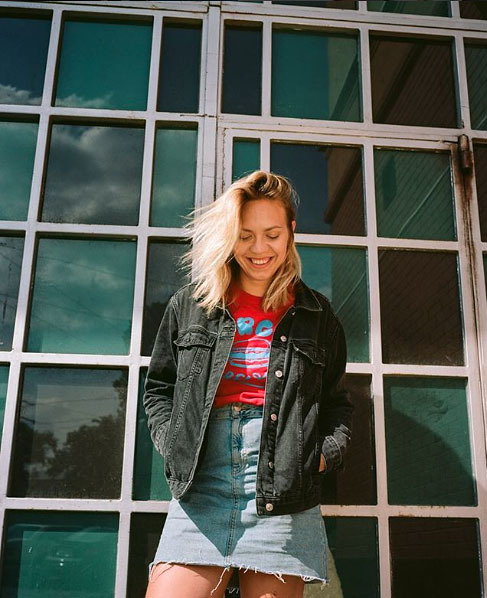
At the moment, I’m trying to tell my friends that, you know, if you have a wedding, don’t just go to Zara and buy a dress. Like, maybe check you really don’t have something in your wardrobe because you probably already have something you can wear. And you know, you can wear the same thing twice, nobody will judge you. And if you really don’t have it, then look around, because tons of your friends probably have something you can borrow too. Because you don’t need a thing that will just hang in your closet doing nothing for the next three years after you’ve worn it once – it just doesn’t make sense. So that’s the idea I’m trying to offer to my friends: to buy responsibly. I’m not saying that you shouldn’t buy anything, but if you really need to buy it, make sure you need it and then try to buy from the best source possible, or Depop, or Fairtrade.
And the good thing is, a lot of brands like Monki are making all of their jeans with a sustainable sources and there’s this awesome brand called Reformation and they make everything all from sustainable materials and use materials that use less water than cotton. They also make all of their dresses from deadstock materials and those are the coolest dresses, cooler than anything from Zara. They can be a little more expensive, but you know you’re buying something with a good cause.
What would your advice be to not only designers, but also to consumers, in fashion right now in 2017, in making that change?
Check the label and don’t be afraid to say what you think. I think that when people know their rights and they want the brands to be better, then the brands will actually do it. So the more conscious the people will be, the more the brands will have to make a bigger change. And even the small changes like banning plastic bags and trying to recycle and reuse what they already produce help too. And H&M had this thing where you can bring your old clothes and they’ll recycle it – all those things really matter because it’s education. Those aren’t the things that will make more money for the brands, but it’s something that they have to know that yes, they need to make money, but they also have to give back to the country and its people. Everybody together has to try and remember that we have just one planet. Money is one thing but you won’t be able to buy another planet with any money you could ever earn. Some people keep forgetting that, they want more power and more money and act inhumane. And I’m like, are you going to just move Mars? It just doesn’t make any sense. Everyone just has to keep that in mind. And if you can’t find any good people, then be one.
Aside from sustainability in fashion, which is of course an important drive right now, what other qualities are important to you in the industry?
Being fair, and not treating people like objects. Treat people like you would want to be treated. And also it’s good to try and avoid the rat race, be nice to people and treat anybody as a competitor, because if you are good at something, you will never have any competition. Help others as much as you can and share your knowledge and experience, because no school will give that to you. If you can be nice to other people, do it. It makes the whole world a better place.
To keep up to date with Areta and her work, you can follow her here.



